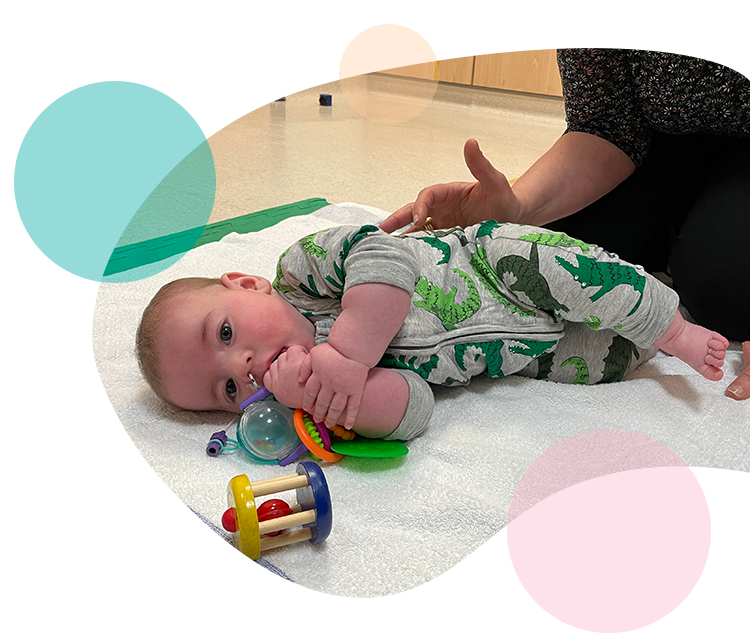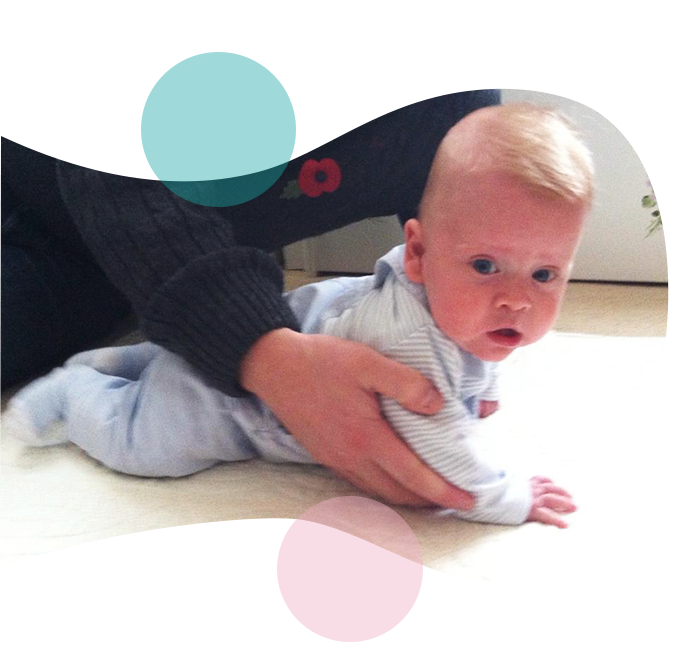How can I apply the Motor thread, to support my high risk infant?
Sensory, motor, and cognitive development are strongly inter-related. Learning to be stable in different postures (e.g. lying on your back and keeping your head in the middle, side lying and sitting) is important, for example, to enable visual development, which influences attention and communication with carers. Early therapies for movement not only improve precise movement in that moment, but also provide building blocks for future cognitive development.

